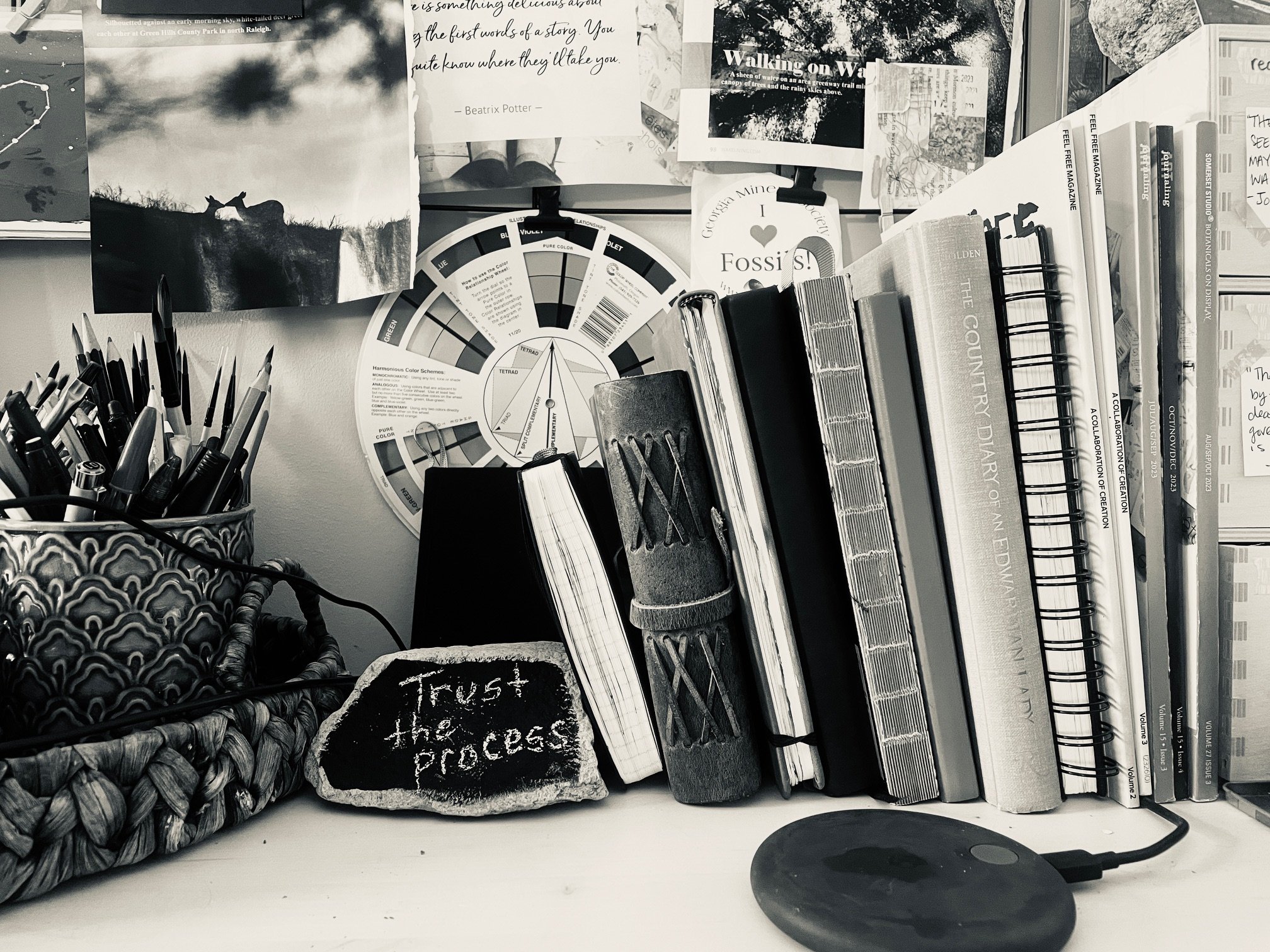I keep many journals at a time. I share a list of them, below. These journals, pictured here, are currently sitting together on my art studio desk.
I used to get overwhelmed and stressed out by my journals, even though it was my choice to keep them. I would put unnecessary pressure on myself to keep ‘perfect journals’, meaning, I’d need to record regularly, keep them neat…I’d even go so far as filtering my thoughts so I wouldn’t create a mess or a need to scratch anything out. I would skip two or three pages when I’d start a new one so I wouldn’t mess the first page up. I got to a place where my journals were more of a hassle than a blessing, yet I knew that keeping journals blessed me.
I finally examined how I wanted to use my journals as a tool to serve me instead of me serving them and I relaxed into a practice that felt so much more freeing and effective. Here are a few tips that helped me, in case they may be helpful for you, too:
First and foremost, live your life. There will be nothing to write about if you aren’t living your life, first.
Then, listen to your life - in all of the mess and chaos and in the beauty and silence.
Finally, learn to treat your journal as a tool that serves YOU, and not vice versa. Record that which you wish to remember, or record as a way to process/think/capture/praise/worship/pray/dream, but don’t record because you need to have something for the day, or you don’t want to break a streak. Treat your journal as a tool and not a boss.
Something else that was really helpful for me in my journal-keeping practice was adding ‘Morning Pages’ into my daily rhythm and routine. I complete morning pages first thing in the morning and they serve me as a dumping ground for all of my thoughts, the good, the bad, and the ugly, and I have permission to write in a ‘stream-of-consciousness’ style so it is to be expected that they will be messy, chaotic, and all over the place.
These tips have changed the way I journal; they have changed the way I live.

